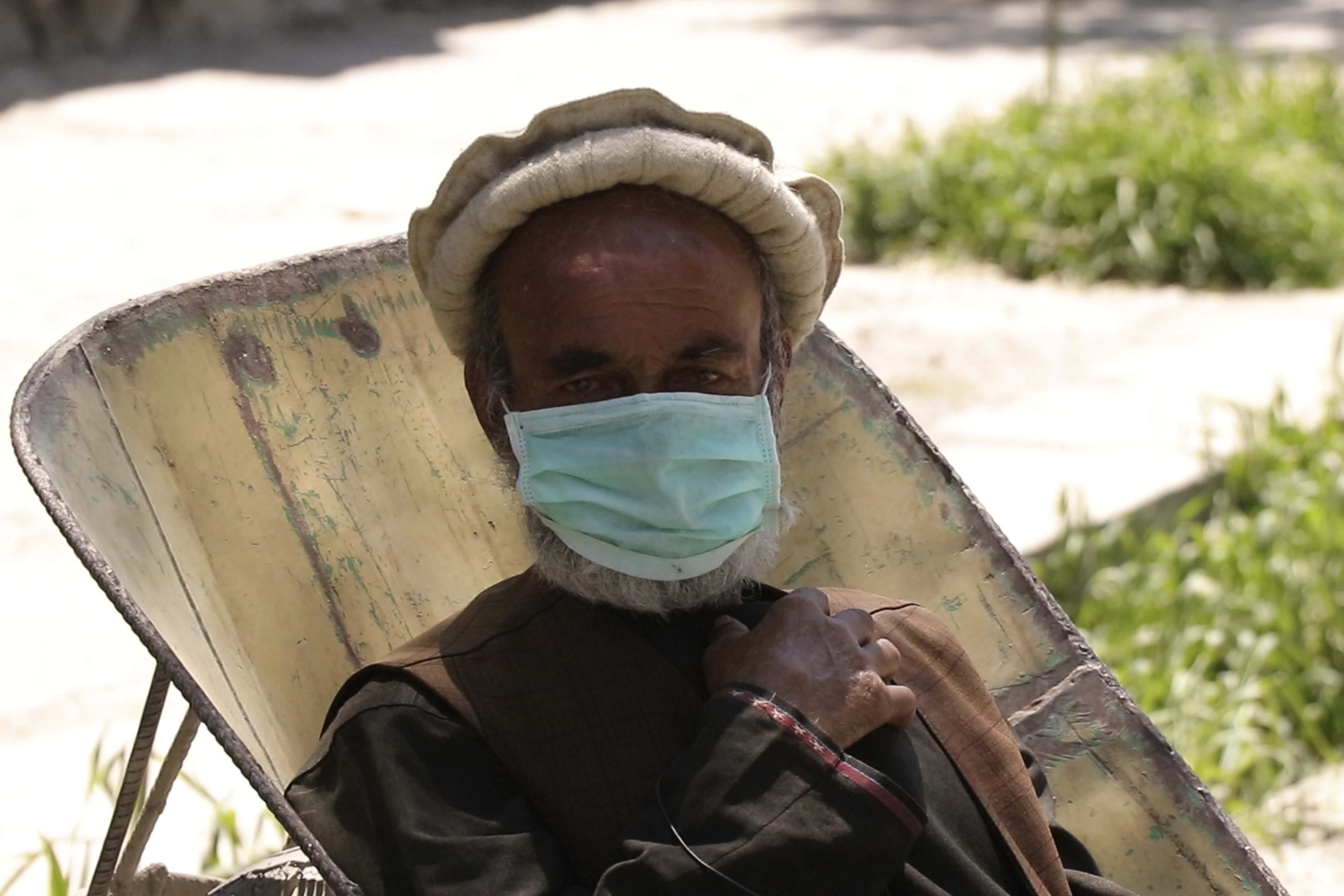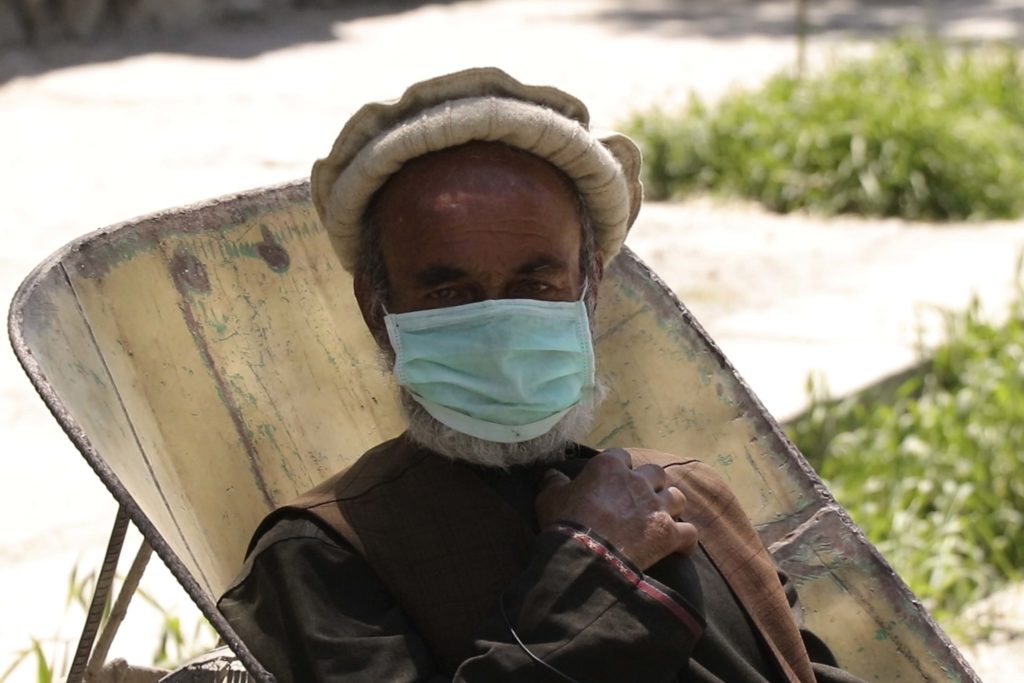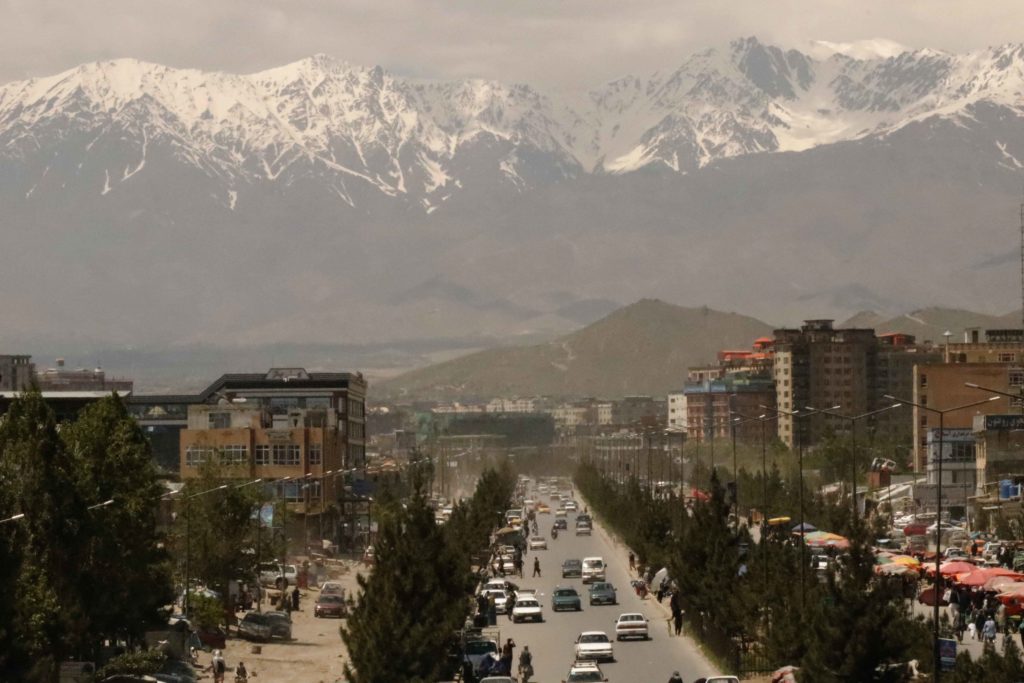After a week of staying at home, Ali Khan, a fifty-year-old street laborer who owns a wheelbarrow, is back on the streets of Dasht-e-Barchi in west Kabul to carry people’s goods. “I spent all the savings I had with my family during the last week and I had no choice but to come back on the street to work despite all the risks.” Said Ali Khan.
Streets in the normally busy and crowded capital city of Kabul has a deserted look now, with most of the shops closed and residents remaining indoors, following the lockdown imposed by the government to contain the spread of COVID-19. An estimated 6 million people live in Kabul city alone and there are tens of thousands of daily laborers on the streets every day striving to take home some food in the evening.
The lockdown has put an additional strain on impoverished communities who rely on daily income for their survival such as daily street vendors and laborers. In addition, the prices of foodstuffs have soared after the borders closure and shortage of food supplies.
“What I earn today is spent today, tomorrow is a whole another story.” Ali Khan explained.
Mahdi and Jawad are two young people who live in West Kabul. They have launched a campaign online to encourage people to help vulnerable families in their community who suffer the most under the lockdown.
“In the days of quarantine and the restriction, the daily income of most vulnerable families in our community has been completely cut off. Among our friends and relatives’ circle, there are certainly generous and kind people who are willing to help these poor people. By raising awareness and reflecting on the plight of the poor and needy, we can encourage our good friends to help them. Our aim is to identify both the contributor and the deserving recipient and facilitate the flow of these donations between them. However, we also encouraged people to help the poor directly in case they identify them in their close neighborhood, as we are not able to identify all the poor and needy.” Said Mahdi.
So far, they have been able to encourage many contributors and help at least 75 families with cash and food aids through their campaign. “Most of these families relied on daily income and had no savings at all. They were not prepared for the lockdown, which would probably last for months.” According to Mahdi.
Mahmood is the neighbor of Ali Khan. Inspired by the campaign, he helped Ali Khan with a sack of flour. “I bought three sacks of flour for the lockdown period but then gave one of them to Ali Khan because I knew he is a daily laborer and he needed this more than I do.” Said Mahmood.
Expressing his gratitude, Ali Khan says he is not interested to risk his life on the streets of Kabul either if he could support his family during the lockdown. “These aids can save thousands of lives from infection and hunger.”
“This is certainly a tough time. The entire world is affected by the pandemic. We need compassion, care, and generosity now more than any other time. The least we can do is check up on our close neighbors who live next door to see whether or not they have enough food to feed their children during quarantine and if possible help them as much as we afford.” According to Jawad.
“Our campaign is getting wider and stronger every day and more families are now inspired to help other families.” He continued.
The positive cases of Covid-19 infection have reached over 2000 in Afghanistan so far and the lockdown is expected to extend for a longer period.















